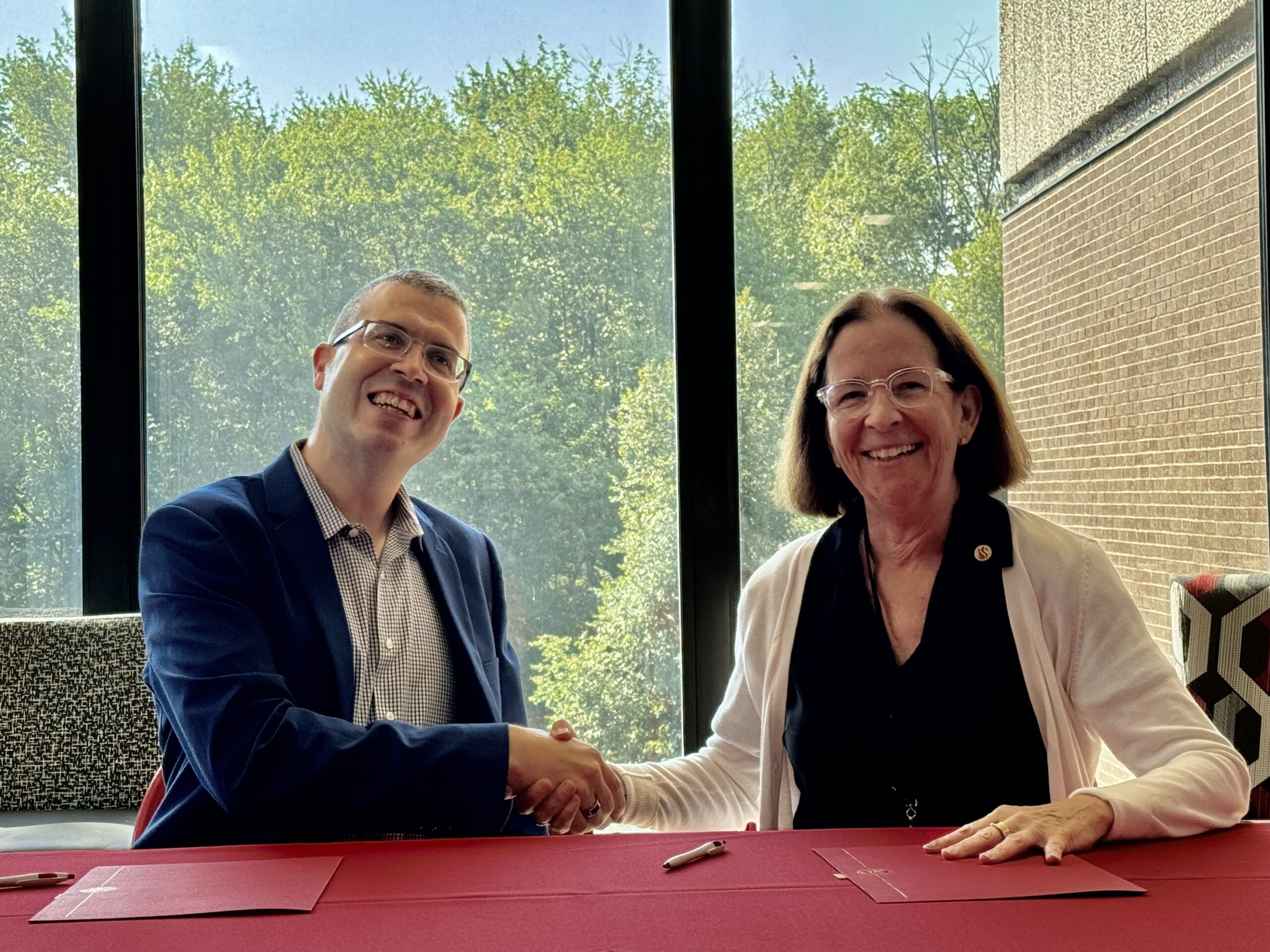FDU Announces University Partnership with UCNJ

Michael Avaltroni, President of Fairleigh Dickinson University, and Margaret McMenamin, President of Union College, signed a new partnership agreement between the two institutions.
July 16, 2024 – UCNJ Union College of Union County, NJ forged a partnership with Fairleigh Dickinson University (FDU). This alliance will provide students who graduate from UCNJ the opportunity to pursue a bachelor’s degree with FDU, with the convenience of taking classes at UCNJ’s Scotch Plains Campus.
UCNJ’s Scotch Plains Campus is the headquarters for the University Center, a destination campus with strategic four-year university partners. Beginning as early as Spring 2025, FDU plans to offer bachelor’s degrees in social work and select health care programs. These programs are connected to the local labor market needs and will provide a strong foundation for careers that provide family-sustaining wages.
“At UCNJ, we are thrilled to expand learning opportunities for our graduates. This alliance allows our students to continue pursuing more advanced degrees locally at UCNJ. This partnership reflects our commitment to transform our community, one student at a time, and we are excited to witness our future health care staff, nurses, and social workers achieve their academic credentials right here at UCNJ,” stated UCNJ’s President Dr. Margaret M. McMenamin.
This UCNJ-FDU partnership is designed to facilitate bachelor’s attainment among UCNJ grads. The University Center at the UCNJ Scotch Plains Campus allows associate degree graduates to take their third- and fourth-year courses and earn their bachelor’s degrees close to home.
“We are very proud to begin this new partnership with Union College of Union County,” said FDU President Michael J. Avaltroni. “Increasingly higher education must be able to provide students flexible and convenient programs that provide them competitive advantages in the marketplace. We are thrilled to provide exciting new options for these students and to bring courses and programs directly to the students where they already are and where they already have achieved success. By meeting them here and integrating them into the FDU landscape, we are providing them more opportunities to launch exciting careers and pursue their dreams. We look forward to building this partnership into something very special.”
The Scotch Plains Campus University Center, where students will take classes, has recently undergone renovations that include enhanced study spaces for students, computer labs, and additional classroom space. The Scotch Plains Campus, in addition to housing the University Center, is also home to the College’s Virtual Campus, and community collaborations.
For more information on UCNJ’s University Center, visit https://www.ucc.edu/universitycenter/
UCNJ is a public, comprehensive community college that provides quality, affordable, accessible educational programs to the greater Union County region. It is the first of New Jersey’s 18 two-year colleges, serving both career-minded and transfer-oriented students since 1933. The College offers a wide variety of academic and extracurricular activities. UCNJ provides many experiential learning opportunities such as access to a Bloomberg Business Center, Innovation Center, and Student Research hub. Additionally, students at UCNJ attend one of the top 10 community colleges in the country for 2025 as designated by the Aspen Institute College Excellence Program. To learn more, visit www.ucc.edu.
Fairleigh Dickinson University offers more than 100 undergraduate and graduate degree programs, including doctoral programs in education, pharmacy, nursing practice, clinical psychology and school psychology and an AACSB-accredited business school. Degree programs are offered on two New Jersey campuses and at two international campuses: Wroxton College, in Oxfordshire in England, and the Vancouver Campus, in British Columbia, Canada. For more information, visit FDU.edu.